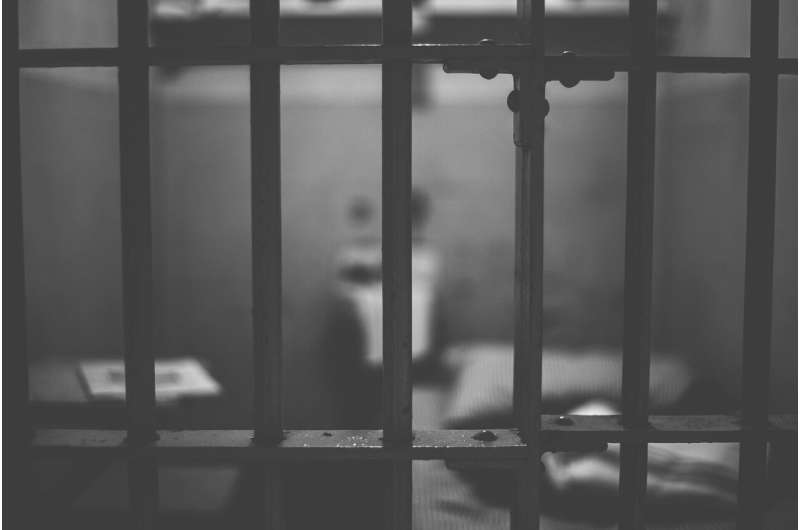To reduce jail populations, increase mental health services in communities, study suggests

A new study by Schar School of Policy and Government researchers concludes that U.S. jails are de facto mental health institutions, with nearly 10 times as many individuals with serious mental illness in prisons and jails than in state psychiatric hospitals.
The study also found that access to affordable health care services and behavioral health treatment in the community changes how the jail is used and reduces the size of the jail population.
"This study is important because it illustrates the interconnection between mental health services in the community and the size of the jail population—that is, if counties invest in expanding local health services, then they can reduce how they use their local jail," said Faye S. Taxman, founding director of the Center for Advancing Correctional Excellence (ACE!) at George Mason University and the principal investigator of the study.
The data is relevant "to policy makers at federal, state, and local government agencies in terms of reducing the unnecessary use of local jails," she said. "It also illustrates a connection that the number of services in the community is important to improve outcomes."
Researchers included Niloofar Ramezani, a biostatistician at Mason's College of Engineering and Computing, and collaborators from Michigan State University and the University of Central Florida. The researchers studied the size of jail populations in 3,100 U.S. counties to explore factors contributing to the over-use of incarceration in county jails in the face of increased mental health challenges within those communities.
The study's conclusions point to increasing mental health services—particularly in counties with smaller populations, reduced numbers of high school graduates, and fewer treatment services—to reduce prison and jail populations.
There is hope on the horizon, Taxman pointed out.
"The new Bipartisan Infrastructure Bill has funds for mental health services," she said. "If used, that funding can help to reduce the over 11 million Americans who are processed by local jails each year."
The study is published in BMC Health Services Research.
More information: Niloofar Ramezani et al, The relationship between community public health, behavioral health service accessibility, and mass incarceration, BMC Health Services Research (2022). DOI: 10.1186/s12913-022-08306-6
Provided by George Mason University


















